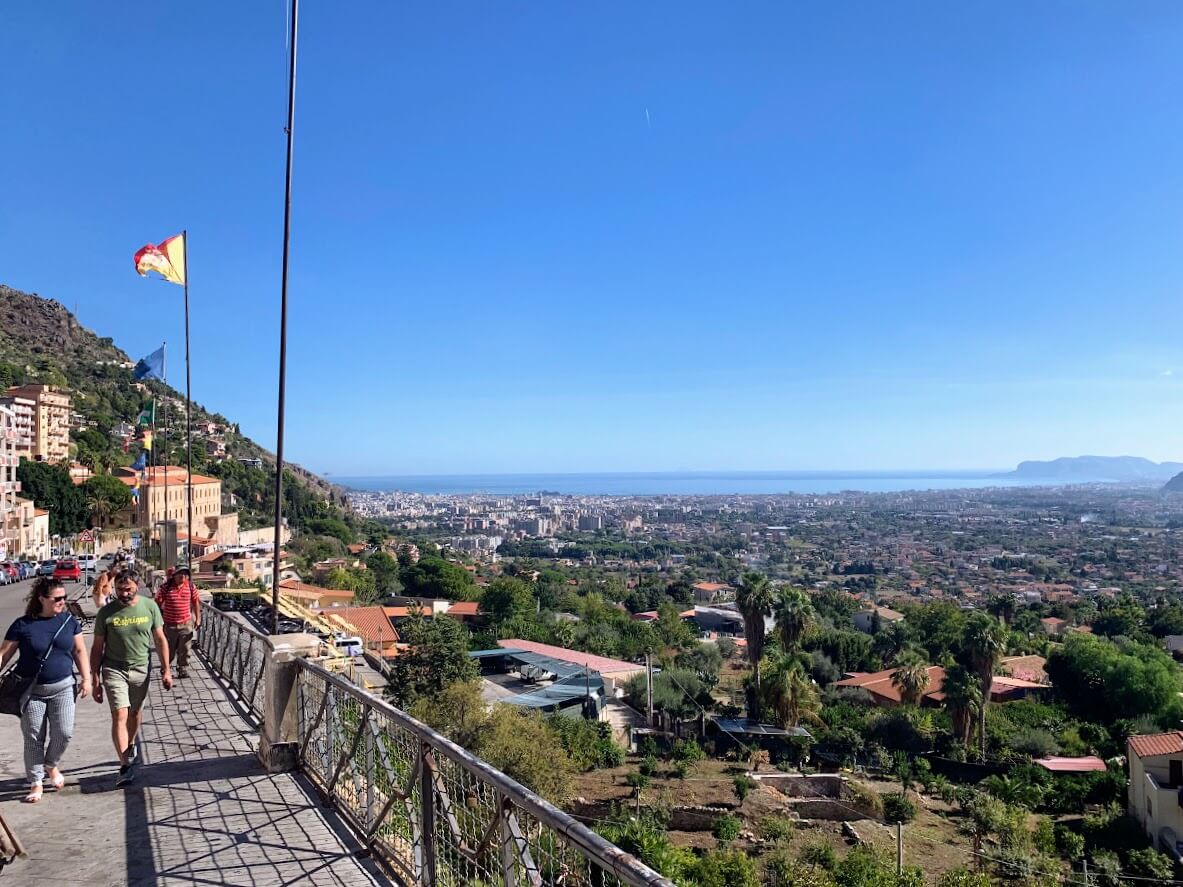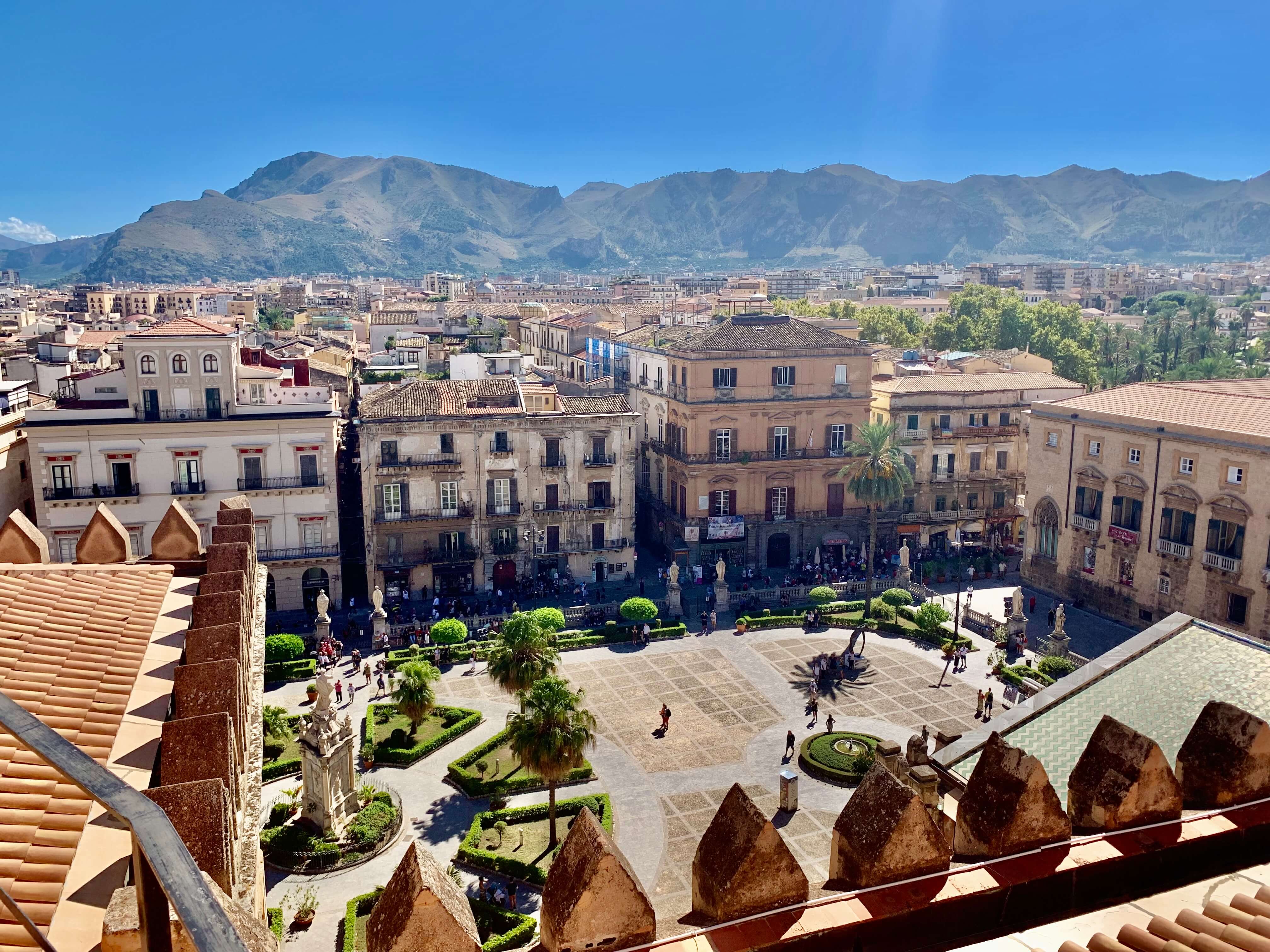- Home
- Sicilian Culture
- Religion
- Agatha of Sicily
saint agatha of sicily - patron saint of catania
Agatha of Sicily, also known as Saint Agatha, was a Christian martyr from the 3rd century AD.
Agatha was born into a noble family. She is known for her refusal to marry a Roman prefect, resulting in her arrest and torture.
On this page, you will find information about the life and death of Saint Agatha.
Despite her tragic fate, Agatha's destiny has also inspired believers for hundreds of years. The festivals held in her honor in Catania are an unforgettable experience for anyone who attends them.
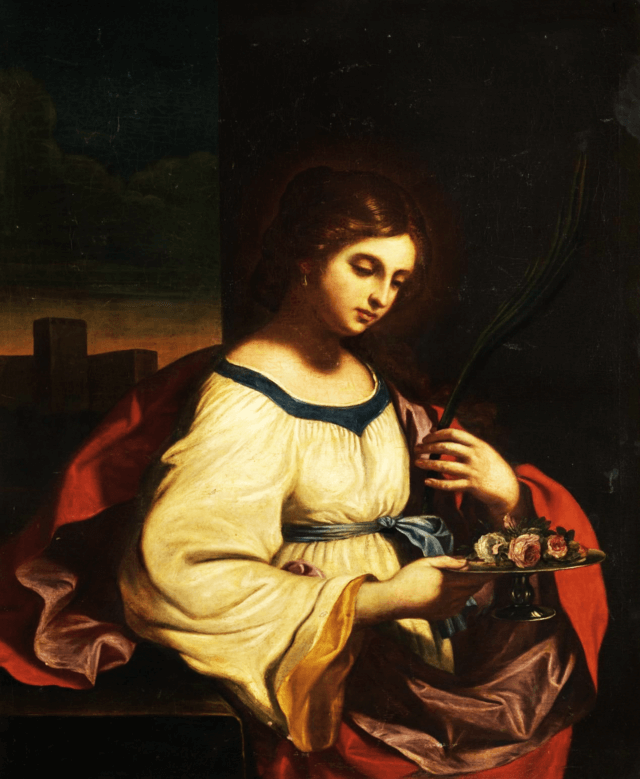 Saint Agatha
Saint AgathaSaint Agatha of Sicily: The Life of Devotion and Suffering
Agatha of Sicily also recognized as Saint Agatha, was a consecrated virgin born in 231 AD in Catania. She was born into a noble family. From a young age, she dedicated her life to Christianity.
She came into a confrontation with the powers-to-be after she refused to yield to the advances of a Roman prefect. The prefect was not happy. His ways to persuade the girl included arrest, torture, and execution.
Agatha was put to death during the Decian persecution (250-253). The times were bad for Christians, but they were also slowly changing. It didn't take long for Christianity to become the official religion of Rome - of which power Sicily was then under.
Despite the brutal treatment, Agatha remained steadfast in her faith. She is venerated as a saint in the Roman Catholic Church, Eastern Orthodox Church, and the Anglican Communion.
Saint Agatha is the patron saint of breast cancer patients, rape victims, wet nurses, bell-founders and bakers. In Switzerland, she is regarded as the patron saint of firefighters.
Agatha is also the patron saint of Catania, among many other cities, such as Gallipoli in Apulia.
As devastating as Agatha's story is, it is also inspiring. Today, it compels thousands of people from across the globe to journey to Catania. Which in itself is one of the most interesting cities in Sicily.
A visit to Catania during the Saint Agatha Festivity leaves one with a profound sense of holiness. It also gives one a lasting memory of Sicilian culture and tradition.
 Martyrdom of Saint Agatha by Giovanni Battista.
Martyrdom of Saint Agatha by Giovanni Battista.Festival of Saint Agatha in Catania
Every year, from the 3rd to the 5th of February, Catania bursts into life as it hosts one of the largest religious festivals in the world - the feast of Saint Agatha. The streets are adorned with lights and decorations, and the air is filled with the aroma of local delicacies. The sounds of joyous singing echo through the city.
The festivity begins with the procession of the relics of Saint Agatha, carried in a crystal reliquary atop a silver carriage through the streets of Catania. Thousands of devout followers dressed in traditional white garments and black caps fill the streets.
The sight is both humbling and awe-inspiring.
Throughout the three-day festivity, various religious and cultural events take place. These range from grand processions and solemn masses to effervescent fireworks and concerts. All these together create an overwhelming feeling of unity. The event draws locals and tourists alike into a shared devotion and celebration.
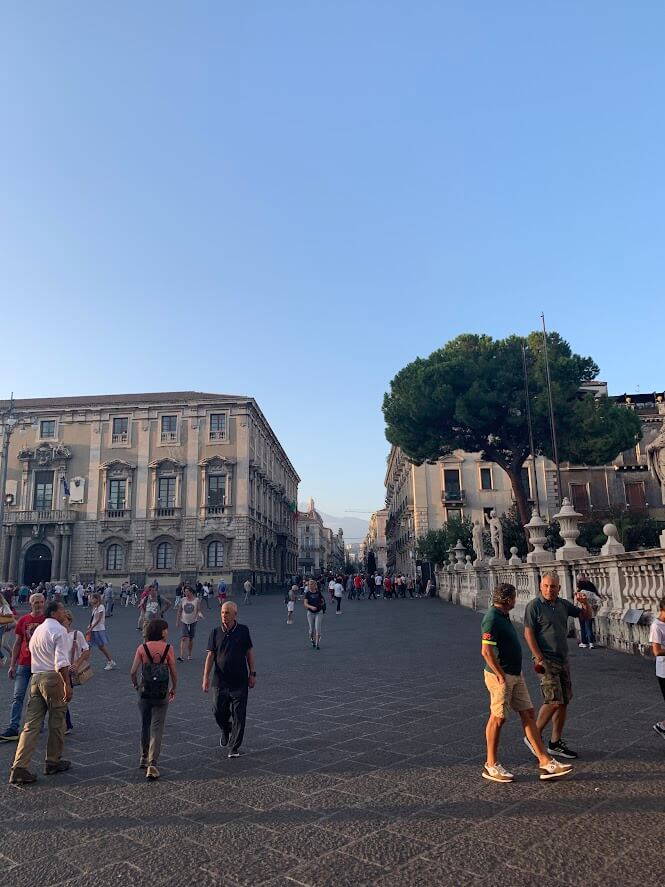 Piazza Duomo in Catania is a place where different people meet.
Piazza Duomo in Catania is a place where different people meet.Catania - Not Just Any Old City
With its inspiring stories and lively celebrations, Catania is not just any destination. It is an exotic and often chaotic destination that rewards the brave. The many layers of history surface through the surface of modern chaos. The city is filled with ghosts and holy spirits of the past.
Visiting Catania during the festival of Saint Agatha is not merely about attending a religious event; it promises a unique cultural exchange. Amid the spiritual aura, you'll find the time to mingle with locals, experience their hospitality, and understand their deep-rooted love and respect for Saint Agatha.
All it requires is an open mind.
Every turn you take in Catania during the feast introduces you to mouth-watering Sicilian delicacies. The festive buzz amplifies the culinary scene in the city, adding another layer to your experiences.
One of these delicacies is "Minne di Sant'Agata." Before her execution, Agatha's breasts were cut away as a punishment. These cakes in the shape of a woman's breast are made in her honor. You'll find them in Catania and all over Sicily.
As you stand among thousands of people, the atmosphere electrified by the anticipation of the procession, sharing food with the locals, you understand the power of faith. The ways it shapes culture and community. This experience goes well beyond mere sightseeing.
Visiting Catania during the celebrations brings new light to your journey. When you walk the city streets, watch processions, and soak in the religious fervor, you become, in a way, part of the city's living, breathing history.
A festival brimming with joy and devotion, a sense of being part of something greater than yourself - the promise of an experience that is both culturally enriching and personally rewarding.
As you immerse yourself in the rich traditions of Catania, you will find yourself touched by the spirit. Is it Saint Agatha or just a communal way of healing itself? Whatever it is, it certainly inspires hope and strength.
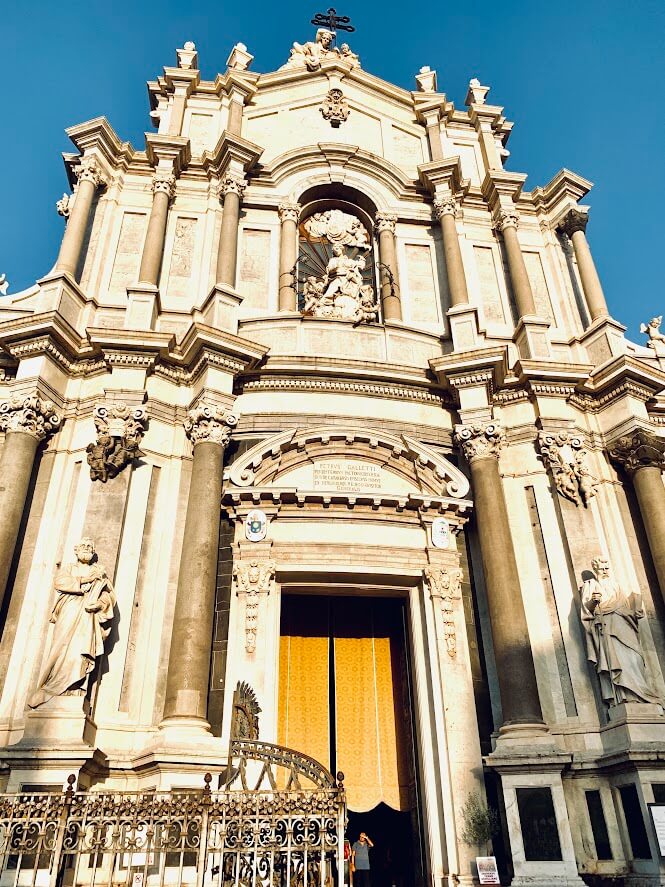 The Cathedral of Catania, where the remains of Saint Agatha are located.
The Cathedral of Catania, where the remains of Saint Agatha are located.Religious Sites Dedicated to Saint Agatha of Sicily
Catania is home to numerous religious sites where one can feel the silent holiness that has pervaded them for hundreds of years.
The crown among such sites is the Cathedral of Saint Agatha. It is located in the center of the city. It houses the relics of Saint Agatha. It is one of the most significant places of pilgrimage in the Catholic world.
The history of the cathedral dates back to the Norman era. The Normans built it after conquering Sicily back from the Muslims. Saint Agatha was then already the patron saint of Catania, so the Normans dedicated the cathedral to her.
The original building has since been destroyed by earthquakes. It has been replaced by a beautiful Baroque cathedral. It is one of Catania's main attractions.
There are several other churches dedicated to Agatha in Catania. One such church is the Church of Sant'Agata al Borgo. It was built in 1680 for lava refugees from Etna.
Another important place is the Church of Sant'Agata la Vetere. It contains the sarcophagus of Saint Agatha, brought back from Constantinople in 1126 by the crusaders Gisliberto and Goselmo. The coffin serves as the main altar of the church.
On Via Museo Biscari you will find Agatha's House. This is where Agatha's mother lived. The place is now marked by a gravestone.
The Church of Sant'Agata al Carcere was built on the site of the cellar where Agatha was tortured by the Romans. There you can find a footprint in the lava rock, said to have belonged to Agatha.
Conclusion
Has the rush of everyday life become a blur? Do you crave a unique journey of exploration and discovery?
Then, remember Catania, its old street corners, its ancient allies, and - most of all - the devotion of its people. Remember the promise of holiness, of transcendence - the Agatha of Sicily.
The trip to Catania and participating in Saint Agatha festivities offer a break from the mundane. It is a trip into the annals of history, a firsthand experience of faith that has stood the test of time. More than anything, it is a manifestation of faith and enduring hope.
If you're looking for an experience that leaves you with a deep sense of connection, a greater understanding of the world, and memories to cherish, consider joining the city of Catania in its grand homage to Saint Agatha of Sicily.
(October 18, 2023)
Recent Articles
-
Sicilian Food - Rich Flavors, Endless Passion
Apr 09, 25 09:54 AM
All you need to know about Sicilian food, its ingredients and history. -
Things to Do in Palermo - Tips for a Perfect Holiday
Apr 05, 25 04:27 AM
Things to Do in Palermo - From historic landmarks to delicious food, this guide has it all. -
The Story of Tommaso Buscetta: From Mafia Boss to Key Witness
Mar 30, 25 05:12 AM
Tommaso Buscetta built Sicilian Mafia into a global empire - which he then destroyed.
Follow MANY FACES OF SICILY on Facebook, Instagram, Bluesky & Pinterest
Contact: vesa@manyfacesofsicily.com
